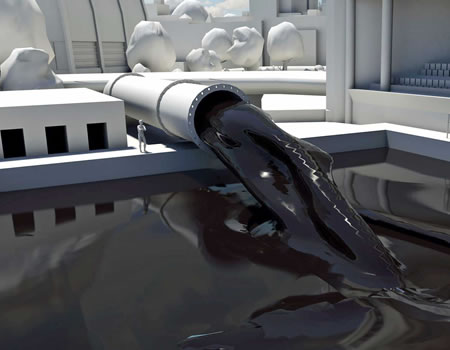There is no doubt that the state of the country’s infrastructure leaves every patriotic Nigerian despondent. There is also no argument about the fact that fixing the infrastructure would gladden Nigerians and facilitate the country’s development. Electricity supply is abysmal, leaving many people to look for alternatives, which is one of the major reasons for the high cost of doing business in Nigeria and the unacceptable rate of youth unemployment. It is therefore not surprising that the country was ranked second worst in electricity supply in 2017 by the Spectator Index of the World’s Electricity Supply.
Travelling on many Nigerian roads is nightmarish because of their deplorable state. Most of the roads are worse than those in war-torn countries. Not only do the bad roads hinder commerce, they have also caused many deaths. The country’s railway system belongs in the Lord Lugard era and requires upgrading and extension to facilitate business and commuting. So, the concern of the president about the need to deploy resources to building facilities is understandable. Nigeria can sure do with better infrastructure. But be that as it may, it is our considered opinion that it is inappropriate to deploy excess crude oil earnings to infrastructure building at the moment.
Elections are quite close and the temptation to engage in political patronage is quite high, especially if the president plans to seek reelection. Planning to channel excess crude oil earnings to infrastructure development at this time could be subjected to abuse, which would deprive Nigerians of the real value for the money because a huge chunk of the funds could be expended on political exigencies rather than the projects for which they are primarily intended. Then, the government needs to cultivate the culture of saving for the rainy day. It smacks of crass insipidity for a country to spend all its earnings. Countries must always save. That is what saves them from bad times.
This same point was stressed by Buhari as the presidential candidate of the All Progressives Congress (APC) ahead of the 2015 elections. He complained that the administration of former President Goodluck Jonathan failed to save when the prices of crude oil were high in the global market. The current administration has said almost ad infinitum that it was the failure of the immediate past administration to save when crude oil prices were high that precipitated the economic recession from which the country recently exited. Now, should the Buhari administration fall into the same spendthrift ditch which it claimed the Jonathan administration revelled in? The current administration which prides itself as a corrective one should be seen veering off the misdeeds of the past, not accelerating in the same direction.
One of the major shortcomings of governance in this country is the absence of new and creative thinking. The government has always resorted to deploying its resources to infrastructure financing as if that is the only available model. These days, most governments have ceded infrastructure funding to private sector operators. That model does not only free up government funds for other critical issues, it also brings efficiency into infrastructure development. Rather than thinking of emptying the ECA on infrastructure development, the government should emplace policies that would attract private sector funds into infrastructure development. That is safe and effective; it is the way to grow the economy.






